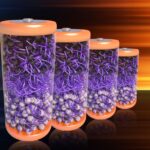 Researchers in South Korea have developed a continuous process that converts hard-to-recycle thermoset plastics into valuable syngas using oxy-fuel combustion. Led by Dr Chong-Pyo Cho at the Korea Institute of Energy Research (KIER), the method tackles the mounting waste and resource challenges head on. Thermoset plastics, common in automotive and electronics applications due to their durability, have long been problematic to recycle. Instead of defaulting to landfills or incineration, this new approach offers a cleaner, more efficient alternative.
Researchers in South Korea have developed a continuous process that converts hard-to-recycle thermoset plastics into valuable syngas using oxy-fuel combustion. Led by Dr Chong-Pyo Cho at the Korea Institute of Energy Research (KIER), the method tackles the mounting waste and resource challenges head on. Thermoset plastics, common in automotive and electronics applications due to their durability, have long been problematic to recycle. Instead of defaulting to landfills or incineration, this new approach offers a cleaner, more efficient alternative.
By carefully removing nitrogen from the air—thereby reducing unnecessary heat loss—and using a regenerative melting furnace to maintain temperatures up to 1,300°C, the team has cut tar formation by 93.4%, producing syngas with just 0.66 mg/Nm³ of tar. This dramatic reduction means that expensive tar purification is no longer needed. In a pilot plant setting, the process handles one ton of waste plastics daily, generating 0.13 kg of hydrogen per kilogram of waste. With three domestic patents and one international patent already secured, the next step is scaling up to process 2 tons per day. If you’ve ever wrestled with the challenges of recycling stubborn plastics, this innovation might well offer the practical solution you’ve been waiting for.








